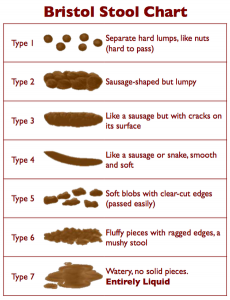 Magnesium is one of the forgotten essential nutrients, overlooked by the food industry and the medical community in favour of ‘superstars’ like calcium and iron. Why is this so, when no other nutrient can perform the work of magnesium?
Magnesium is one of the forgotten essential nutrients, overlooked by the food industry and the medical community in favour of ‘superstars’ like calcium and iron. Why is this so, when no other nutrient can perform the work of magnesium?
1. Magnesium’s role in the human body cannot be categorized into merely one box. So it’s tougher to market in a culture programmed to see things as ‘the cause of A (disease) is B ( habit) and the solution is C (drug, surgery, etc.)’. You may have noticed that things are rarely resolved so easily. In fact, in nutritional science, the solution is usually the inverse of B! All that is to say that magnesium is required in over 300 chemical reactions that keep you alive. Nerves, muscles, bones, hormones, the liver, the brain, ….all of these require sufficient magnesium to function properly.
2. We tend to think of natural supplements as ‘natural remedies’ instead of the essential nutrients that so many of them are. Saying that magnesium “helps” with high blood pressure, constipation, PMS and headaches keeps us from remembering it doesn’t just cover up our ills like an analgesic (pain reliever) would; rather magnesium is an essential nutrient that maintains health (and therefore the absence of symptoms, the latter which occur when a nutrient is deficient).
3. There is no one disease that has been directly linked to magnesium deficiency. Instead, there are probably hundreds of diseases, or symptoms that it is linked to. Compare this to scurvy, the disease of poor immunity that cannot be cured by anything but vitamin C. Medicine likes to simplify and look for ‘the’ cause because too many variables make it too expensive or difficult to test using the scientific method.
In short, magnesium has not gotten the media attention it deserves. You need it daily. But consider this:
- The foods richest in magnesium are the hardest to get enough of in your daily diet. The richest sources—nuts— are ban
 ned from schools; greens are a kid’s worst dinner-plate nightmare. The health benefits of cocoa–also a very high source of magnesium—are arguably reduced by the detrimental effects of the excess sugar, fat and caffeine that chocolate-flavoured treats contain. So I challenge you to achieve the upper end of the RDI (recommended daily allowance) for magnesium–500 milligrams daily for adults—through diet alone.
ned from schools; greens are a kid’s worst dinner-plate nightmare. The health benefits of cocoa–also a very high source of magnesium—are arguably reduced by the detrimental effects of the excess sugar, fat and caffeine that chocolate-flavoured treats contain. So I challenge you to achieve the upper end of the RDI (recommended daily allowance) for magnesium–500 milligrams daily for adults—through diet alone.
- We each have unique nutritional requirements. Even if you calculate your intake to be close to the RDI, consider that due to a variety of genetic factors and lifestyle stressors, you may not be getting enough to function optimally. You may need 20 milligrams, or you may need 3 grams to prevent fatigue, muscle twitching or cramping, sugar cravings, insomnia, headaches and many other symptoms that are associated with inadequate magnesium intake.
Now for the information I promised you:
Here’s How You Can Find Out Your Optimal Daily Intake:
Step 1: Obtain a good quality magnesium supplement, such as magnesium glycinate in capsule form. (By the way, by “high quality”, I mean highly absorbable.)
Step 2: Without changing your diet, begin taking one capsule of magnesium each day.
Step 3: Increase the dosage by one capsule each day (in divided intervals, such as morning and night). Be sure to record how many capsules and the total intake in milligrams, you have taken that day. This will be important later!
Step 4: Keep taking the magnesium in increasing amounts until you experience a very loose stool. This means you have exceeded the amount of magnesium you can absorb in one day.
Step 5: Reduce the amount of magnesium by one capsule a day until the bowels produce a solid well-formed stool again. Not sure what that is? Aim for #3 or #4 on this chart: 
Congratulations! You have identified your optimal magnesium intake. Record the amount and any improvements in your health while you’re reaching your required intake. Improvements may include increased energy, fewer food cravings, lessened PMS (in women), prostate gland support, fewer headaches and muscle cramps, and more! Tell me about your experience here:
Important note: if you suffer from any diagnosed health condition, please talk to your medical or naturopathic physician before taking magnesium supplements.
